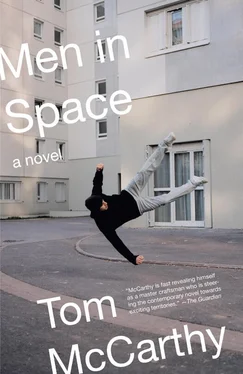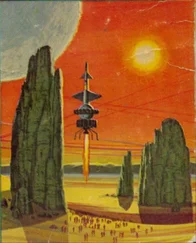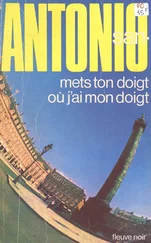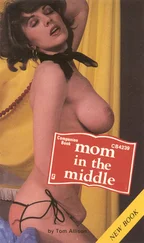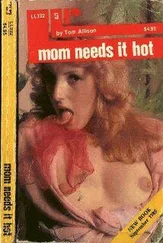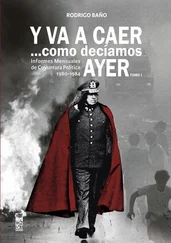“Why have they got wings then? Huh? Huh?” Anton throws a nut at her, which flies past her head and hits the painting. Ilievski winces.
“Watch out there! That cost us fifty thousand. And it’s probably worth fifty times as much.”
“Sorry.” Anton pours himself another glass as well. “I saw a painting recently, a modern painting, with a bird-man in it, falling. It was at that party of the French painter: Jean-Something. That was when I first met Ivan Maňásek and gave him the job.”
“What’s that?”
“That’s where I saw a painting of a bird-man falling.”
“Who?”
“In the painting. This figure was falling, with his wings on fire.”
“Icarus,” says Helena, picking the fallen nut from the carpet and popping it into her mouth. “He flew too close to the sun and the wings his father’d made for him caught fire.”
“When was this?” Ilievski holds his glass out to let Anton refill it.
“No time. In a Greek myth.”
“Something your father told you?”
“No, an ancient Greek one. Icarus was the son of Daedalus, a craftsman. He built …”
“Listen to her, Constantine. My wife’s done a degree in this stuff.”
“I thought it was in physics. I thought that’s how …”
“That was her second degree. She’s a genius.”
“He built wings, and a labyrinth, where children were taken each year.”
“Every two years a new degree …”
“What children?” Ilievski asks. Anton reaches for more nuts.
“Athenian children. They were taken away each year, twelve of them …”
Her voice trails off. Anton rises from the sofa, carries the nut bowl to where she’s standing and offers her one.
“Have you got a glass?”
“I’ll get one.” She walks back into the kitchen. There’s a moment’s silence. Anton starts back towards the sofa, then turns around and peers at the paintings instead.
“This building at the bottom’s a bit like a labyrinth. A maze on several levels, with joining alleyways and floors. It’s like a Hopi pueblo.”
“Who’s that? Another painter?”
“No,” he answers, smiling, “it’s in Arizona. The Hopi are Indians. They lived on mesas, in buildings carved out of the rock. Still do, only now they have proper houses. That’s our first American holiday: Arizona.”
“You must understand that writing, then, if you studied ancient Greek,” Ilievski says to Helena, who’s come back with a wineglass.
“It’s not ancient Greek, though. It’ll be Byzantine, I should think, which is slightly different.” She pours herself a glass.
“Oh! The second half’s about to start.” Anton scampers back to the sofa, sits down on it and immediately shuffles forwards to its edge. A banging comes from somewhere.
“Was that the TV?” Helena’s holding her glass still, listening.
“No,” replies Anton, right hand feeling for the nut bowl on its left, flailing slowly on the table like a seal’s flipper. “Maybe it’s some fireworks left from last night. Here come the officials!”
The banging comes again from the hallway. It’s the door.
“Could you get that, honey?”
Helena sets her wineglass down and goes to answer. Ilievski looks out to the hallway.
“Are you expecting anyone?”
“Who knows? Maybe Milachkov’s come round to watch the second half. Look: here they are!”
The players’ tunnel’s mouth disgorges from whatever labyrinths lie behind it two lines of young men. The men jog out in single file; then, as they cross the painted touchline, they spread across the field, jump, stretch their groins or sprint in short bursts back and forth, waiting, like Anton, for the moment when the whistle will once more release them into game time, into pure geometries of green and white.
* * * * *
Nick’s been partying at Karolina’s place, at Gábina’s, at Marek’s and at Karolina’s again for days — over a week now. At Karolina’s in particular. He always thought, when modelling at AVU, that she scrutinized his body in a way that was more than academic; once or twice he let his imagination slip, picturing them together at a club or concert, then back at Maňásek’s, beneath the angel — and caught himself just in time, before his fantasy became public in front of a dozen people ready to capture its effect in crayon, ink and charcoal. Somewhere between Christmas Day and New Year’s Eve and several bottles of Becherovka, he found out he hadn’t been too far off the mark in his imaginings when Karolina pulled him into a spare room at Marek’s, wrapping herself around him as they tumbled onto coats and pillows. He’s barely been back to Maňásek’s since then. He’s only left her flat right now because Mladen told him he’d heard of a phone box at Jiřího z Poděbrad that connects you anywhere in the world for a crown …
This turns out to be true, but half of Prague seems to have heard about it by now. There were six or eight shivering people queuing when Nick got here, all foreigners like him. The rule seems to be ten minutes each. He’s at the front now, right after this African who must have been in there eight minutes already. Behind him three short South Americans hop from foot to foot, black felt hats pulled down tight over thick, oily hair. Probably musicians: he’s seen guys like them playing at Mústek. Never on Charles Bridge; those Californian potheads who were in Jean-Luc’s atelier play there most days. Bizarre: must be some kind of quid pro quo . Heidi said the South Americans sent all the cash they earned back to the Maoist guerrillas in Peru. It seems unlikely, but you never know. Behind them stands a gaggle of Vietnamese. They all have crooked teeth. Behind them, two fat Gypsy women with scarves wrapped around their heads, then two white men wearing old grey caps and jackets: maybe Poles. It’s an assembly line of the displaced, all waiting patiently to connect, if only for ten minutes, through a black, spiralling cord, to a spot in the past, some warm and fuzzy navel …
Somewhere up in the grey sky an aeroplane groans by, descending towards Ruzyn? wheels clunking out to feel their way through cloud into this new year. Back on the ground, the cabin’s door swings open and the African steps out. Inside the box it’s even colder for some reason. Nick’s fingers won’t grip on the coin that’s in his pocket, have to scoop it out instead; as valuable seconds tick away it drops back twice before he brings it up towards the slit. It’s zero-zero, then four-four for the UK, and then you have to drop the zero, so it’s one-eight-one, then … His father picks up.
“Duncan Boardaman.”
“Hi Pops.”
“Nick! Where are you?”
“Prague. Where did you think I’d be?”
He hears his mother in the background, his father telling her: Your son, from Prague . His father’s about to tell him she looks beautiful and pass him on.
“How was the uncoupling?”
“From Slovakia? Seamless. Mission accomplished without hitch.” He makes a crackling sound, as though he were reporting the news from an international space station.
“I’ll pass you to your mother, who’s looking beautiful. We’ve just done a New Year’s jog.”
The receiver hangs in the air of the kitchen for a few seconds, picking up the scrape of feet on red clay tiles, a coffee mug being set down on the sideboard. Through the window at the end, beside the blue towel hanging on its wooden rail, the garden will be cold and hard, silver with frost if the sun’s out, or if it’s snowed then white with green blades poking through. His mother’s voice comes on the line:
“Happy New Year.”
“Happy New Year.”
“How are you?”
“Fine. Cold.”
“We saw pictures of Prague on New Year’s Eve.”
Читать дальше
